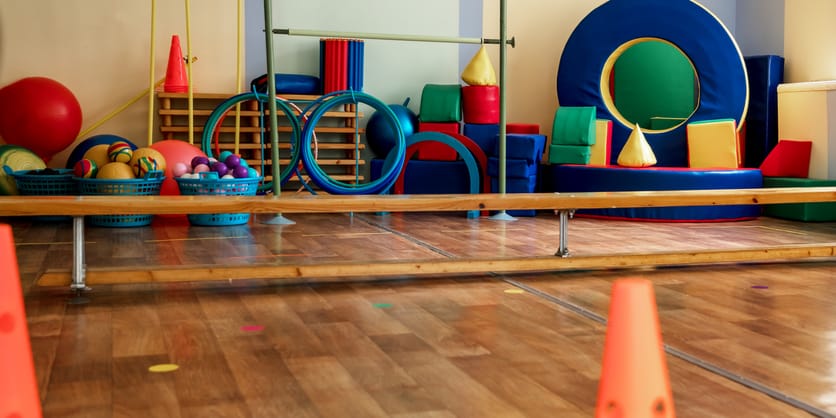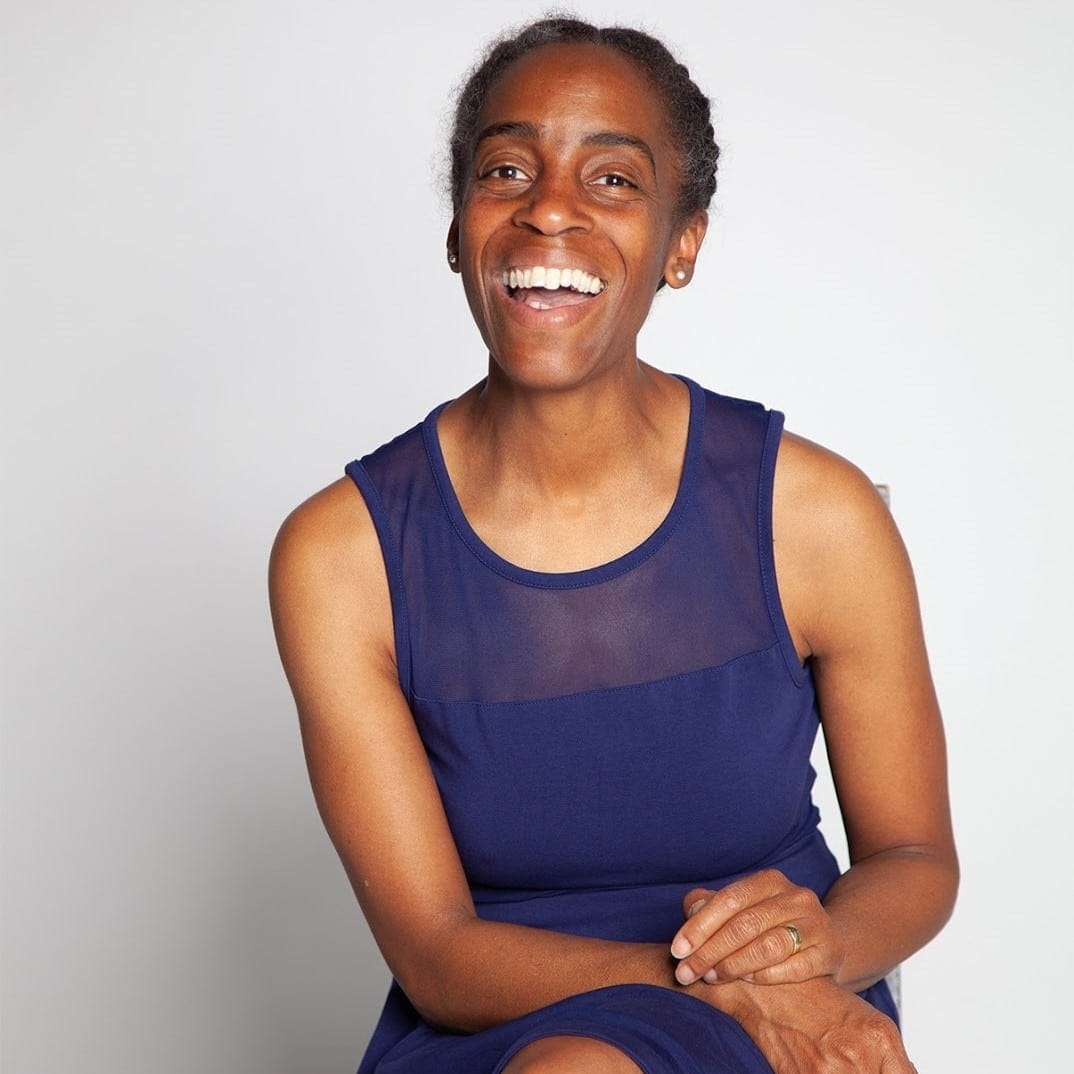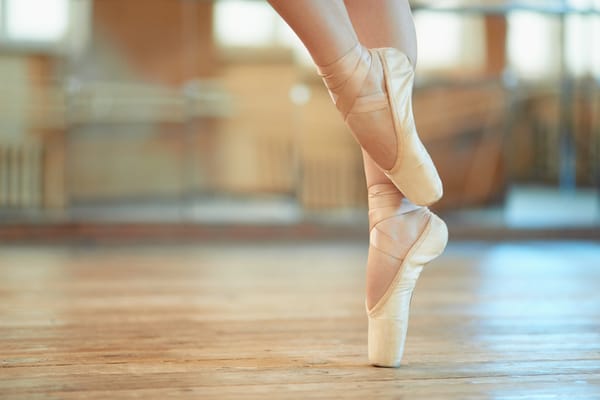The Progressive PE Class: Sherri Spelic on Cultivating a Lifelong Love of Movement

Welcome to Episode 3 of the Second Breakfast podcast. In today’s episode, I talk to Sherri Spelic, who is an educator — a PE teacher! — a coach, a former middle-distance runner, an ex-pat, a writer (the author of the book Care at the Core, which explores ideas around digital identity and power). But I think you’ll be able to quickly gage from our conversation that Sherri is also a friend.
And before we launch into that conversation, which we recorded in December, I just want to restate that goals of the podcast, here at the outset at least — episode 3, right? I want to use this platform as a way to reconnect with some of the various teachers and coaches and instructional designers that I knew from my old life — the one in which I wrote about education technology. But I wanted to shift the discussion from teaching and learning and thinking with technology — this way that so many people talk about these as utterly disembodied activities — towards conversations about embodied learning and about learning about our bodies as we age (and as Silicon Valley tries to tell us we need to “optimize” this). I want to talk about physical activity and technology. About what we learned about our bodies during the pandemic in particular. I talk a lot about how the Silicon Valley ideology wants us to forget the past — the distant past and the recent past — and I see very few people actually hashing out what the fuck we all just went through. As educators. As students. As parents. As human friggin’ beings.

I knew I wanted to talk to Sherri when I launched Second Breakfast, in part because she’s a person who I knew could help me think through everything and to do so with care and ferocity. I first met Sherri via Twitter, and we started off our conversation talking about what relationships — professional and personal — look like now that social media is sort of over. From there, we talk about social aspects of sports, how we learn about aging bodies from our parents, how PE shapes our understanding of our bodies, and more.
If you’re interested in these sorts of conversations, please send me ideas of who you think I should talk to next — maybe it’s you! Also please consider becoming a paid subscriber to Second Breakfast as your financial support helps me continue this work — and, for our purposes here, enables me to pay my guests, which matters a lot to me.
Without further ado…
(Below is a condensed version of our conversation. You can hear the whole podcast on iTunes.)
On Running:
Audrey: So I'm signed up for this group class that the New York Roadrunners do and we're working on speed work. And it kicks my ass. But it's the first time I've done any group class like this. Any kind of group physical activity setting is still super intimidating for me.
Sherri: Yes. And still, you've gone and...
Audrey: I’ve gone and it's fine. It's not the same as PE as a child but there's still that sort of that weird lingering effects of you know of some of those experiences that make it make it strange.
Sherri: So, good on you for going, because I have to admit, that's not something I necessarily would sign up for. I'd be like, mm. The group thing in running for me was always fraught.
Audrey: It is fraught. I have done some group runs while training for half marathons. But that's different because everyone is doing their long run together slowly. And you can have a nice little chit chat with the people that run at your same pace. But this is a speed class, which isn't conducive to chit chat. And also there's something about running quickly that again triggers all of these memories of childhood that I find just intensely traumatic.
Sherri: Yeah. I mean, if you're signing up for speed work, then the point is to be fast, faster, fastest. Like, that's it. So.
Audrey: Yes. Then they told me on the first day of class, I showed up and they said, you're in group one, the fast group. I was like, the fuck I am.
Sherri: No thank you.
Audrey: Yeah.
Sherri:That's so interesting. Where did that come from? I mean, what information was that based on?
Audrey: The New York Roadrunners manage many of the races in the city, including the marathon, and there's a program in which if you run a certain number of races with them every year, you get entry into the marathon. And they keep track of your pace in order to place you in the corral groups for these large races.
And I did very well at the Staten Island Half Marathon, apparently well enough to be in group one, which... Yeah.
Sherri: Okay, well, I mean, again, speed, speed can be, it depends on so many things, right? So many factors, like, what's the, you know, what are the parameters? Like, how far are we going? How many times? And what is the pace? Who is running? Blah, blah, all of that. Yeah. So maybe in fact, maybe group one is right on target.
Audrey: So it's interesting because I'm learning again as a new runner and as a new athlete — all of this is totally new material. So it's just a fascinating intellectual exercise, let alone like a physiological exercise. And I'm learning that I am quite good at endurance. So set me up to run. I can run. I can run pretty quickly for a long time, but make me run sprints, like 400 meter repeats, and I want to die.
Sherri: Yeah. That makes sense. And that's a logical thing. I mean, as someone who came from the sprints to middle distance and then long distance, you know, getting back to the track was always sort of like, oh, great. Okay, good. I got this. And the beauty of course of doing endurance training and then doing the speed work was always like, oh, let's go. All right.
Like that was just such a joy, even if I knew like, ooh, this is gonna be hard, but I knew that I had it, speed was just there, and I had it. So I can appreciate not having that background — because it's hard, it is hard.
Audrey: It is hard.
Sherri: Good sprinting, successful sprinting is very much connected to technique. And we don't talk about that, but it is, it is technical. You know, the way that you have to raise your knees and your footfall and all of that is completely different from your long run. And so being able to learning to do that is important because it does improve your overall running capacity for sure.
Audrey: I think to me it's also learning what your body can do. I know for I've had a story my whole life based, in fact, based probably on some of the early elementary school experiences I had in PE class, I had a story that I couldn't do any of this. And so to figure out how fast can I run is really new and interesting. Mentally I'm like, I don't know, I don't think I can. I don't think I can, but I can. And so learning that and being in the group one in particular, I get home and I look how fast I ran and I was like, damn, that's fast.
Sherri: Yes, yes. And that's, I mean, for me, that's the beauty of running. I mean, I think when I started long distance running, the thing that kept me in it was the curiosity. I also wanted to know, well, where can I take this? Because of course I ran in high school, I ran for two years in college, and it wasn't until later… I started doing road races maybe in the, oh, I don't know, in the late 80s, early 90s. And then, but only after my older son was born, that's when I started marathon training. When I ran my first marathon, James was almost one.
And marathon training was the thing my husband had at the time was also a marathon enthusiast. And when I said, Hey, you know, I think I might like to try it. He was like, yeah, you should do that. He fully endorsed it. So once I discovered that I had grounds to be away from home for up to two and a half hours by myself doing something for me, that was also physical. I was like, Hey, this is okay. So that was the great discovery of long distance training was like, oh, not just what can my body do, but oh my gosh, this is great. I am by myself. I am free.
Audrey: Yeah, there are so few spaces, activities like that for women. I mean, physical activities. Men get to do these kinds of things, like, you know, play golf, be gone all frigging day.
I think within the running community, one gets to recognize that it is really precious time. I think it's one of the reasons why you see the proliferation of runners who are our age, who are like, wow, I have time now. I never had time before. Who has that time as a mom, as a working mom, as a younger working person.
Sherri: Yes, yes. So that for me was so utterly eye-opening. And again, I learned about what I could do by myself for myself, because I didn't work with a coach. I mean, of course I knew some things about distance running generally, but this whole marathon thing. And then I got on the marathon and it was like, it was a natural, it was one of my best marathons. The first one was just like, oh, and I felt great. And I think it was just the fact that it was this freedom, this absolute joy of this is time for myself and I am going to savor every minute of it.
I wouldn't try to run a marathon anymore because my knees are done, but that's also due to a fairly long career of running. So if you're just sort of beginning, then I think, man, you've got some time. You can do some stuff.
Audrey: This is true. Having been a non-athlete for 50 years, I have no old injuries to worry about.
Sherri: It's huge. It's funny. Again, when I think about it, because I think I kind of retired at 30, let me think, like 35, 36, something like that, where I finally said, okay, it's my last indoor championships, Austrian indoor 800 meters. Okay. I ran it, had a couple of friends come and clap. Yay. Okay. It came in third. Of course, they were at like maybe five entrants.
My friends gave me spikes to hang up on the hook, like, okay, I'm done with all that. Yeah. And that was a great way to just sort of say, excellent. But by the time 40 rolled around, I was thinking, who am I if I'm not a runner? Because that's how people knew me. People knew I was the runner, oh, are you still running? Every time the marathon came up, are you running? I'm like, no, no. But that was the identity, that was the thing that people associated with me. And when I decided, no, I am not doing that, I thought, well, what am I doing? What am I doing that's not running? And then it slowly, it took some time, I think it was a bunch, it was a number of different things.
But it was that question of how am I using my time? What do I want to use my time and energy for?
On Competition in PE Class
Audrey: How can cultivate a love of movement in kids when we place so much value on competition. I mean, the same can be said for academia, right? Competition is not something that just happens in gym class,
Sherri: No, that's absolutely true. What's interesting is that as long as I've been teaching PE, which is now like almost, I think 28 years, I've never been interested in cultivating competition in class. Although kids bring it. There are certain children who have that natural inclination. They want to compete, they want to win, they also want to be first in line, and a whole series of things.
What I've learned is that it's possible to create experiences that allow kids to play a game or engage in an activity where those who kind of want to compete can have some of it, but maybe not all of it, but they get to show what they can do. So for instance, someone who is very competitive, if we play tag, that's a continuous game, that's no elimination, that involves a lot of running and it's really just, oh, get away from the tagger and then also free other people by, you know, crawling under their legs or doing something else, right? If you have that kind of game going on, that the kids who are competitive and really fast, for instance, that they learn, oh, okay, I wanna be the tagger, or they say, no, I don't wanna be the tagger, I just wanna dodge, I wanna avoid being tagged and show how quick and agile I am. But also, those same children that you have to remind, they soon realize that unless they save other people, the game will be dead. And so that they have to do all of the things in order to keep the game going. So if they want the game, they can be quick, they can be fast, but they also have to save other people who have gotten tagged or else the game can't continue. And so I think there are lots of opportunities in PE to offer students.
You can cater to their needs, but you can also shape the parameters, which help them engage in the areas where they might not otherwise be inclined to maybe offer their best effort.
Audrey: This is what I love about play, right? Play is a time in which, I think as a child, you do learn about rules and the negotiation of rules and like commonalities and advocacy, negotiation. But I think that once play tips over into competition, there's less room for it. There's less room for creativity and there's less room for that kind of communal space — often, not always.
Sherri: This is absolutely true. And what's interesting for me, because I teach four-year-olds up to 10 or 11-year-olds. And so I get to see this developmental spectrum about how kids choose to engage. And what's interesting is to notice how important the negotiation of rules are and how,
Kids are sticklers. It's amazing to me that we will talk about playing a game that I think is familiar. We have played it many times before and still, and I'll say, okay, questions. And the number of questions that are really about rule clarification — we want to clarify, no puppy guarding. And then we have to clarify what puppy guarding is, right? You can't be close to somebody who has just been, you can't tag someone who is just getting up or is freeing someone, that kind of stuff, right? But then they'll ask, you know, okay, if there's, if I, if someone throws the ball and I catch it, am I down or do they go down? You know, like they want to know the details and the way in which they think of all the number of eventualities, the possibilities.
It is phenomenal. And their thinking is really rich. So I always think about, like, even when I get a little frustrated, like, come on, friends, like, let's get on with the game, but that phase of questioning, of negotiating the rules, of clarifying that this is an important cognitive step that, again, that enhances the game, right?
Audrey: Yeah, I love that. I love that, I love that working out — what's negotiable, what's not negotiable. We see this in other games that we play, like in board games where there's quite literally someone has printed out what the rules are of whatever it is, Monopoly, Uno, but then we all have house rules, you know? Kids are learning to work out exactly what the context is. And what great lessons, what great lessons for life.
And then too I think the way in which it's embodied thought, not just a sort of pure intellectual exercise.
Sherri: Yes, I mean, they have that practice. And again, watching that process evolve over time with the way that 11 year olds, the way that my fifth graders wanna talk about a game and also the type of games that they're playing, by the time they get to fifth grade, then we probably are gonna play small sided games that may involve keeping score. I am never interested in the score. Some kids are very interested in the score, so if they want to keep score, okay, then you all knock yourselves out, but I am not concerned. That's a choice that you can make within your small-sided game. So if you're playing 4 on 4 and you decide you want to keep score, you can do that. But if this group over here of 4 on 4, if they just want to play the game and not keep score, they can do that as well.
But as kids get older, their capacity to work with rules changes, their capacity to understand the skillbuilding piece that goes into making a game. So for instance, if I want my students to eventually play a game that involves invasion game tactics, where you need to pass the ball and try to score in the opponent's territory, I need to do that in such a way that everyone feels reasonably comfortable catching the object, whatever it is, if it's a bean bag or if it's a ball or if it's something else, that everyone in our whole class needs to feel comfortable that they can catch the thing. And then the next thing is, how do you know who to pass it to? How do you decide that? And so we practice all of these steps before we actually play the game game right, they're lead up games. And that is also a really important piece of PE that I think maybe when we were growing up that we didn't really experience, we just sort of, at least we don't remember experiencing it. If it happens, we just remember the game and we lost and it was terrible, or we were terrible and it was just like, oh, you just... Or we didn't know the rules, only some people knew the rules, or only some people got to make the rules.
The skill building enables every student, enables access, right? That creates access to the game. And that can be a process. And I think this is another piece that is important. And I think has, is certainly more common now in, I want to say in modern PE, in more recent PE, and in the field of this notion of how you create the best conditions for learning for all students. That we cannot only cater to the best athletes.
Or, and again, that's another thing that's very relative because not everybody is, you know, some people are great at all things, but then really struggle when it comes to gymnastics or when it comes to dance, when it comes to other things. So that's the other piece that is so vital to me is that in the school year, I need to give students such a wide range of experiences so that ideally everybody has something where they're like, oh, this is my jam. Okay, let's go.
Like it's gymnastics now, or it's dance, or we're doing parkour, or we're doing soccer, we're doing any number of things. But the point is that everyone receives exposure to a variety of different movement opportunities.
Audrey: Looking back I recognize that I never, never was taught the skills or given in the space to get better, right? I think about the things I do now that are about, you know, we use these words, like, you know, yoga is a "practice," right? Or running, you're doing "training," and there is a recognition that you have to work at these things over time. "Conditioning," right? There's, there's a transformation that happens in your body once you learn to do something. And I don't feel growing up that was, there was ever an expectation that we were going to practice and work on skills. You either were good at it or you sucked at it. And there wasn't ever like a, here, let me break down how to do a layup for you. You know, it was like, Oh, can't do a layup. Sucks. You're going to be the last one picked on the basketball team.
Nobody, you know, nobody ever said, let's work on it. And if it, if it was, it was like this weird drill thing where it was like, do 20 layups. Oh, you couldn't hit a single one? Oh well. Back of the line.
Sherri: Yeah, I have to say right now my colleague and I are doing a little bit of an experiment. Normally we've had a gymnastics unit that everyone would go through and at the end the oldest, our oldest students would produce a short routine, you know, that has to have a certain number of things. So a jump, a turn, a couple of rolls, a couple of weight transfers, yeah, that kind of stuff.
And so last year we came up with this idea. We said, hey, you know, it would be really cool if we offered students a choice. We expose them to different things and then they get to choose the thing that they would like to be assessed in. So this year our fourth and fifth graders, they were all introduced to yoga, gymnastics, and parkour.
Parkour is not my thing. But my colleague, that's something that he really enjoys. And so we had to work out this system whereby my students, who otherwise would not be with him, would also be exposed to parkour. So he led that lesson and then I led the lesson for his kids in yoga and so on and so forth. So finally we get to choice day where kids need to decide what they're doing. And I have one very big class of fifth graders. And I want to tell you that my exposure lesson to yoga did not go well. The gymnastics one was okay. And the parkour one was a hit. So when it came time to choose, and I said, okay, give me your first and second choice because it might not work out. We might not have space for everybody to do, if everybody chooses one thing. Well, all of them chose parkour. And my colleague said, it's okay. He said, it's fine. It'll work out. We'll make it work out. And I said, okay. So I'm in there with him and we're... But I have to say, because of course, I was feeling a little bit hurt. Like really? No one wants to do gymnastics with me? You all want to be with the other guy? Really? Okay. Just that. And there was some novelty, sure. But it was fascinating to watch kids when they get a choice, when they can choose where they want to practice. And it's wonderful. So this program, it's quite labor intensive in some ways, but when the kids get to choose, there is just something so powerful about that.
Audrey: Yeah, and I feel like to me, that's the great thing about being an adult, right? I tell to people all the time when I them grumble about a physical activity…I'm like, you have to find a thing that you like doing. It doesn't have to be running. It doesn't have to be swimming. You don't have to do HIIT classes or Pilates or barre. You get to make a choice. But I think some of us are still in that mode that like, Oh, it's, you know, it's on my schedule. I've got to do this thing and I hate it.
Sherri: Yes, which I honestly as an adult, I have no idea why, why would you choose that? But again, a lot of people associate physical activity with punishment and feel like it should be a form of punishment, right? So there's this Puritan kind of Protestant work ethic, all that stuff, right? That people kind of bring to the notion of, okay, my physical activity is where I, you know, pay for my sins, whatever. Yeah.
On Breakfast:
Audrey: So before we go, I do have to ask the obligatory question, which is what's for breakfast?
Sherri: I thought about this question when I was making breakfast this morning. Like I used to do plain yogurt with apples. Sometimes I would add raisins, walnuts, and apricots and eat that. Okay. Great. Hmm. Lovely. Um, but more recently, this is a little bit influenced by my teen who really needs a lot more protein. And so he's very big into eggs. And so, actually, I made the Dutch baby not too long ago. Yes, thanks to your recipe. And so I've been actually eating scrambled eggs, sometimes with ham. And that's so very unusual for me. So I'm wondering if this is maybe a new phase, a new thing about middle-age that is surfacing about me.
Audrey: I'm actually very, yeah, I'm finding something very similar, which is I used to be like a big sort of carb person, fine. Send me out the door with a piece of toast. But I'm also gravitating towards the savory. And eggs, yeah.
Sherri: And also I think it's odd, I really also am feeling a little bit more inclined towards warm something in the morning. Like the yogurt and stuff was fine, maybe that's fine for the summer, but now that we're in the cooler temperatures, and I really, I want something warm and cozy before I start my day sometimes.
Audrey: Just the other day, I thought, can we make breakfast soup a thing? I guess that's oatmeal, right? But I'm like, I don't want oatmeal. I want breakfast soup.
Sherri: Well, yeah, but a breakfast soup, that's something to think about. I think that feels like that could be a whole new, a whole niche, like, you know, breakfast soup.
Audrey: Oh my goodness, Sherri. It’s been so great to talk to you. Thank you thank you.
You can find more about Sherri, read her work, contact her for coaching or speaking engagements via her website edifiedlistener.blog.
Thanks for listening to the Second Breakfast podcast. We’ll talk next month.





